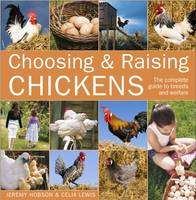Talking Hens with Heather
 Heather Cole spoke at the 2010 Ellerslie International Flower Show about how to keep chooks and ducks happy, with helpful hints for home-built hen houses. Marion Ogier interviewed Heather about how to keep the poultry happy, and what results to expect when keeping hens.
Heather Cole spoke at the 2010 Ellerslie International Flower Show about how to keep chooks and ducks happy, with helpful hints for home-built hen houses. Marion Ogier interviewed Heather about how to keep the poultry happy, and what results to expect when keeping hens.
How many eggs can I expect?
The first question I asked Heather was how many eggs a day could you expect from a hen?
Her reply was that this varies by breed. Older breeds won’t give an egg a day but will give eggs for four or five years. Modern breeds like Brown Shaver or the commercial Highline can produce an egg a day but only for 12 to 18 months. These little egg machines
give out quite quickly, she said.
What should you feed hens?
A high protein diet is important for egg numbers. Heather feeds her hens high protein laying pellets. Organic feeds are also available and combined with the resources of an organic household can produce eggs quite unlike store eggs.
Chooks need and love greens. If they are in a run without grass they will thank you so much for digging up a clump of grass or a root of puha,
she said.
Hens also need grains like wheat, especially over winter. Wheat is a high GI diet for chooks.
Brown Leghorns best layers
Her favourite breed is the Brown Leghorn for laying — they are pretty, active and strut around
. She has a soft spot for Orpingtons – useless as laying birds but wide as they are high — she has an Orpington rooster, which is like a little ship in sail
.
She likes the older breeds because they have character. Her chook run is a United Nations of hen breeds who all seem to get on. Heather recommends the website of the New Zealand Rare Breeds Society to find out about hens. She says there are lots of good United Kingdom websites too.
Rescue hens
Keeping rescue hens is a feel good thing to do. Heather vividly remembers as a child when her father brought home a trailer full of ugly, scrawny things.
They couldn’t walk and just sat for two or three days. When they did start walking they ran everywhere. They came good, and some laid again.
Helen says they make good backyard poultry although you won’t usually get a long life or a lot of laying out of them.
Favourite hens?
Heather currently has an old mother hen, long past laying, called Old Whitey. Old Whitey is a Light Sussex, a breed she says are lovely chooks. Heather says you do get attached to your hens and it is hard when they come to the end of their laying life. Her husband talked of the year when they seemed to be running a rooster retirement home for birds people couldn’t bear to see killed.
Heather has hens that jump up in the feed bin to be picked up and petted.
Death and the hen
You may want to kill your birds for the pot or you may need to kill a bird because it is unwell and beyond saving. Heather is adamant you shouldn’t process your birds if you are not up to it — get someone in. The kindest way to despatch your hen is with a sharp meat cleaver and a chopping block. To manage the bird it may help to put a sack over them with a small hole where their head pokes out.
When good chooks go bad
Chooks with bad habits such as pecking other chickens, eating eggs or attacking people need to be dealt with. Bad behaviours are often caused by their human keepers, Heather says, such as not providing enough food or space, or eggs not being cleared from the nest often enough.
The numbers of hens you keep can make a difference too. Two hens and you will get pecking order issues and bullying — three or more hens and things are calmer.
Different breeds also have different temperaments. Heather gives the example of the Barred Rock, a great breed if you have dogs. A Barred Rock will see off a dog and is a forceful free ranger. They are not suitable if you have children, Heather warns. The last thing you want with children is a big old Barred Rock rooster coming at them with everything flapping and scratching
. Roosters that are troublesome should be taken to the SPCA or found a new home with someone in the country, she says.
Bantams
Last but not least, Bantams are lovely, intelligent hens with great personalities, which make great pets for children. Heather has a broody little bantam she is very fond of which she found had amassed 20 eggs and was trying to cover them when she could comfortably sit on six!
March 2010








